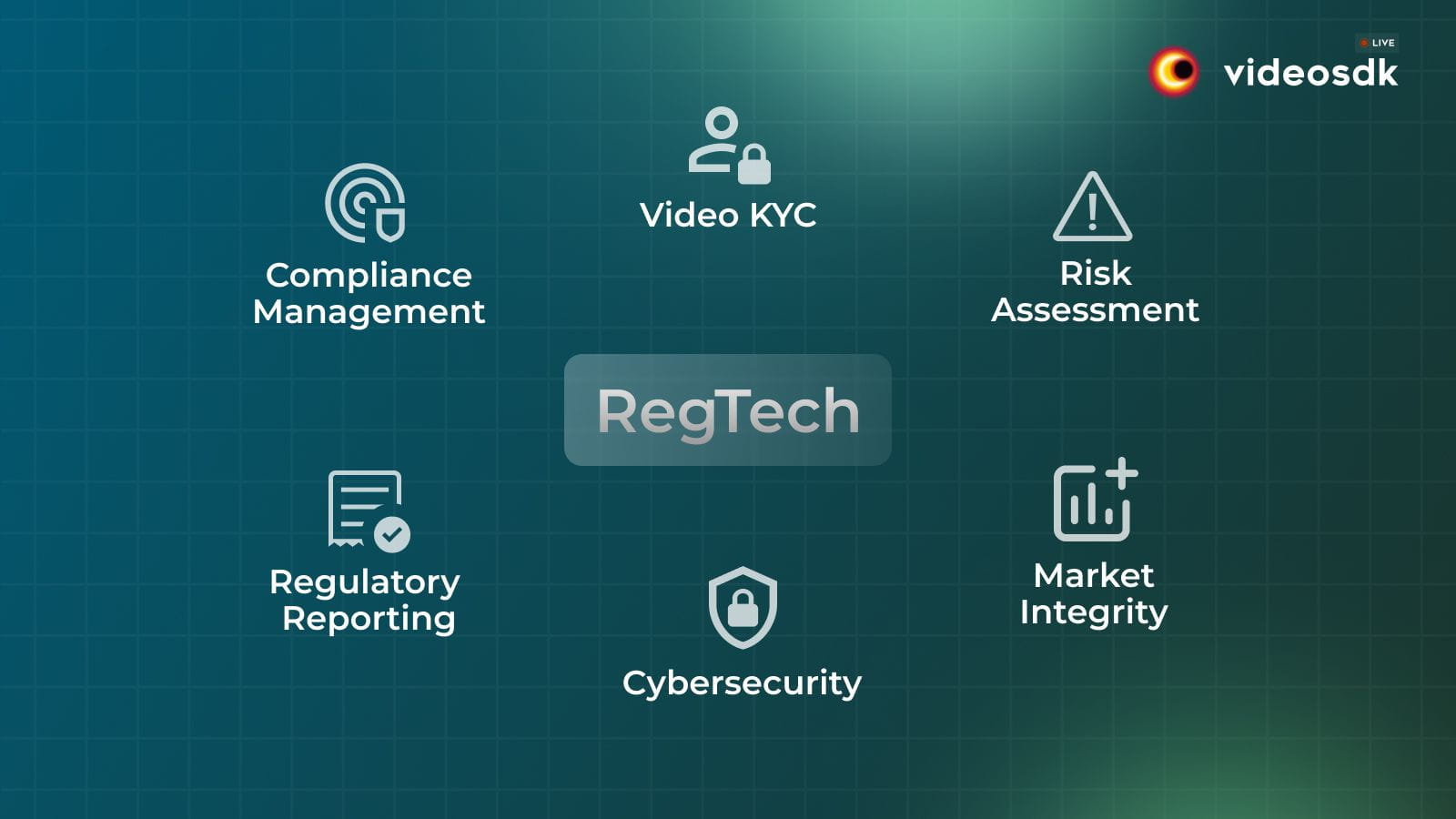Regulatory Technology known as RegTech is an innovative compliance approach for complex regulatory structures in the contemporary financial environment characterized by quick changes. This approach is reshaping how banking and financial organizations manage complex regulations.
What is Regulatory Technology (RegTech)?
RegTech, short for Regulatory Technology, refers to innovative solutions designed to help organizations efficiently and effectively manage regulatory compliance. This cutting-edge field primarily serves industries such as financial services, banking, and insurance, where adherence to complex regulatory frameworks is necessary.
The term "RegTech" was first stamped by the UK's Financial Conduct Authority (FCA) in 2015, although the concept has roots dating back to the 1990s when early digital banking solutions began addressing compliance issues. The 2008 financial crisis further highlighted the need for more robust compliance mechanisms, leading to the rapid growth of the RegTech industry.
How RegTech is Becoming a Key Aspect of Compliance Needs?
Regulatory Technology (RegTech) solutions provide an extensive collection of functionalities aimed at streamlining compliance processes including:
Automation of Compliance Processes:
RegTech leverages automation to streamline various compliance-related tasks, including regulatory reporting, risk management, identity verification, transaction monitoring, and fraud detection.
Data Management and Analysis:
RegTech enables companies to handle and analyze vast volumes of data required for regulatory compliance by harnessing advanced analytics, machine learning, and artificial intelligence. This capability allows for the detection of patterns, anomalies, and potential risks.
Real-Time Monitoring:
RegTech tools provide real-time monitoring of transactions and activities, allowing for immediate responses to any regulatory breaches or emerging risks.
Adaptability to Regulatory Changes:
RegTech solutions are designed to be flexible and adaptable, ensuring that businesses can quickly implement necessary adjustments in response to evolving regulatory landscapes.
Cost Reduction and Efficiency:
The automation of compliance tasks significantly reduces the time and resources traditionally required for manual processes. This efficiency not only cuts costs but also helps companies avoid big fines and penalties associated with non-compliance.
What is the Importance of RegTech for Financial Institutions?
The financial services industry has been at the forefront of RegTech adoption. As regulatory needs boosted, the need for more robust compliance mechanisms became obvious. RegTech in banking has since become an essential tool for managing risk, reducing costs, and ensuring adherence to complex regulatory requirements.
KYC and AML Solutions:
Automated Know Your Customer (KYC) and Anti-Money Laundering (AML) checks with KYC and AML software help verify customer identities and prevent illicit activities, enhancing the overall security of banking operations.
Enhanced Detection Capabilities:
RegTech solutions utilize advanced technologies to monitor financial transactions in real time, detecting suspicious patterns and anomalies that may indicate fraudulent activity or money laundering.
Improved Accuracy and Efficiency:
RegTech reduces human error and increases the speed and accuracy of detecting potential financial crimes by automating compliance processes.
Advanced-Data Analysis:
RegTech's ability to analyze vast amounts of data quickly and accurately allows financial institutions to identify high-risk behaviors and potential threats more effectively.
Streamlined Regulatory Reporting:
Automated documentation and reporting processes ensure timely submission of suspicious activity reports to regulatory authorities, maintaining transparency and compliance.
Adaptability to New Threats:
As financial criminals become increasingly sophisticated, RegTech solutions can be rapidly adapted to detect and combat new types of financial crimes.
Challenges of Regulatory Technology
While RegTech has proven highly effective in enhancing regulatory compliance and combating financial crimes, some challenges remain:
- Data Security: The increased reliance on data processing and storage raises concerns about potential data breaches and cybersecurity risks. To mitigate these risks, internet filtering software helps restrict access to malicious or untrusted online content, reducing exposure to cyber threats and strengthening overall data security.
- Regulatory Uncertainty: The rapid pace of technological advancement can sometimes outpace regulatory guidance, creating uncertainty for institutions implementing RegTech solutions.
- Talent Gap: Effectively leveraging RegTech requires specialized skills in areas like applied data science and AI, posing a challenge for many organizations in attracting and retaining the right talent. The Artificial Intelligence course will help in guidance of data usage, managing access, and overseeing related tasks in blockchain technology.
Future of Regulatory Technology
Despite these challenges, the future of RegTech looks promising. As regulatory environments continue to grow more complex, the need for compliance intensifies. By 2027, the global RegTech market is projected to exceed $28 billion, underscoring its critical role in modern business operations.
Regulatory Technology represents a significant leap forward in how organizations manage regulatory compliance. By leveraging advanced technologies such as AI, machine learning, and big data analytics. RegTech is revolutionizing it, and paving the way for a more secure and efficient financial ecosystem.
For businesses looking to stay ahead in an increasingly complex regulatory environment, embracing RegTech solutions is not just an option, it's essential for maintaining compliance, reducing risks, and focusing on core business operations in the digital age.
